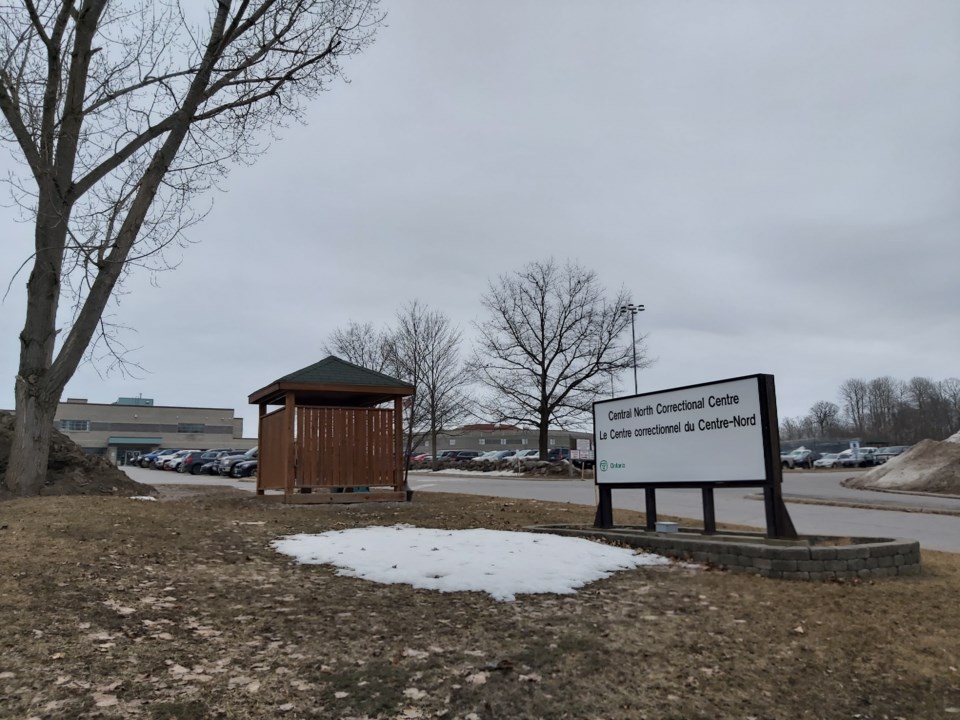Editor's note: MidlandToday received the following letter from Simcoe North MPP Jill Dunlop in response to Wednesday's story entitled Penetanguishene mayor urges residents to keep fighting CNCC policing bill.
As much as people may want to avoid talking about correctional facilities, they are an important part of our province’s criminal justice system and play a critical role in our communities.
In recent years, jurisdictions across the world, including Ontario, have worked hard to make sure jails and correctional centres not only securely house offenders to ensure the safety of our communities, but also support the vital rehabilitation efforts for those serving a sentence or who are remanded to jail.
Correctional facilities play a significant role for the communities they are located in.
For Penetanguishene, the Central North Correctional Complex employs more than 600 people who live, shop, and pay taxes in the surrounding community. Where possible, facilities also strive to source their purchases locally to help support the economic success of their community.
As many community members will know by now, in 2019 the government made the decision to bring the model for policing four of our 25 correctional facilities in line with the remaining 21.
At four institutions only, the province had historically provided funding related to the cost of police answering calls for service from the institutions. To be clear, Penetanguishene’s situation was the outlier; not the norm.
Municipalities traditionally bear the cost of local policing, including calls for service at Ontario’s other correctional facilities, federal penitentiaries, as well as hospitals and mental health facilities. In Ontario, the province pays the vast majority of the cost for the Ontario Provincial Police; in 2019, approximately one per cent of the total cost to run the OPP was billed back to municipalities for their portion of detachment and support positions required to meet their local service demands.
Nonetheless, recognizing the concerns raised by Mayor Leroux, I worked with Solicitor General Jones to ensure that the Town of Penetanguishene could access transition funding for the last two years so that the local council had time to plan the transition to municipal policing costs. Staff within Ministry of the Solicitor General and within the OPP have also worked with municipal staff throughout this year to ease the transition by identifying the new OPP billing model as a way to save taxpayers’ money for policing – both at Central North and in the community.
Additionally, Solicitor General Jones and I met with Mayor Leroux as part of the Association of Municipalities of Ontario conference held each year to listen and discuss this exact issue. It is important to note that the annual AMO conference is an ideal and valuable opportunity for municipalities and the province to hash out issues like this.
Following that meeting, the Solicitor General committed to Mayor Leroux that she would review the cost impact to Penetanguishene every six months and take action if necessary, once the municipality and the OPP are able to provide financial actuals on the number of calls for service for Central North in 2022.
I appreciate that this may not be the outcome that Mayor Leroux hopes for, and as a politician it is his responsibility to advocate for his municipal council’s needs. At the provincial level, we will continue to work collaboratively to support Penetanguishene and the region, as we do all municipalities.
For example, Ontario provided new funding of over $500,000 between 2020 and 2021 under the Safe Restart Agreement for COVID-19 Emergency Assistance to Penetanguishene. The province is also providing $837,563 in 2022 for the Ontario Community Infrastructure Fund, up from $208,447 last year, and totalling approximately $1,600,000 since 2018. This is key funding used to develop and renew community infrastructure.
One thing is certain, I will continue to work hard for the people of Penetanguishene, and the government will provide many supports to ensure a strong vibrant community, and supporting good jobs that families rely on.



